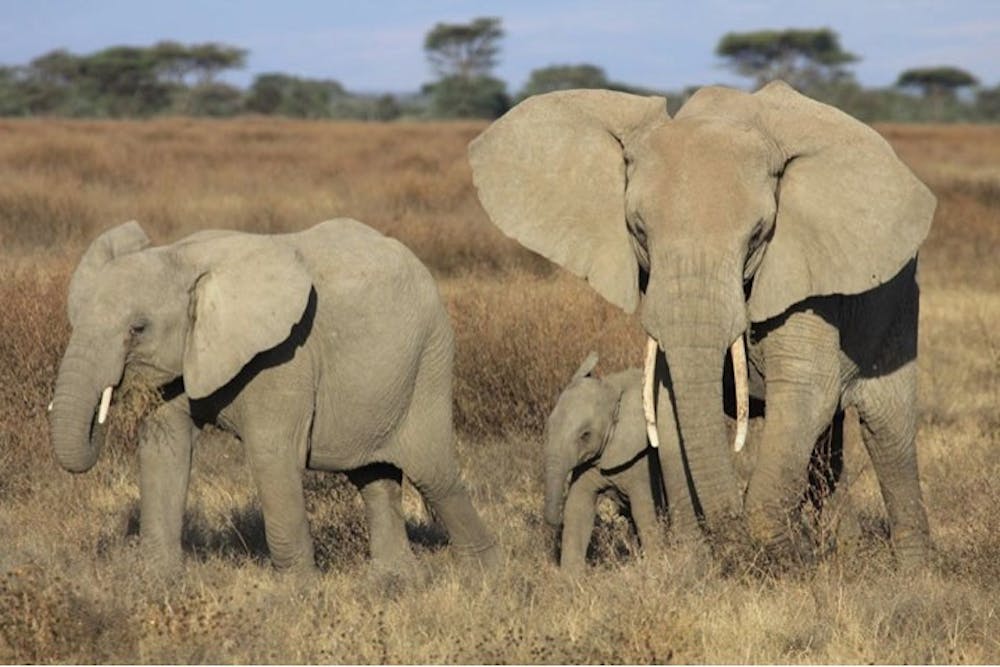Alina Rosenkranz |
Fresh from a month in East Africa, biology professor Katie O’Reilly was jet lagged while teaching last week. She spent two weeks in Kenya and two weeks in Tanzania on a safari exploring Africa’s wildlife, and she plans to share her findings with her classes.
The trip was O’Reilly’s first time visiting Africa, a continent she’d longed to visit for a some time. Her trip was part vacation and part research trip to gain first-hand experience in her field. O’Reilly hopes to integrate her safari experiences into her courses, bringing the theories she teaches to life through examples, pictures, videos and anecdotes.
On one of the safaris, she captured footage of hyenas attacking a zebra. O’Reilly might show the clip to her vertebrate biology class, but she doesn’t personally want to watch the fascinating but gruesome experience again.
“You see three hyenas start biting at the hindquarters of the zebra,” she said. “And what they do is they just start biting, and they got massive jaws, and so they just start biting and eating the zebra while it’s still alive.”
O’Reilly regularly teaches biology for summer study abroad programs in London, U.K. and Broome, Australia. While it’s not only the subject she teaches, her interest in biology colors her favorites hobbies. All of O’Reilly’s favorite activities – hiking, bird-watching, photography, gardening, sailing – involve being outdoors and close to nature.
Ellen DeVitis, a junior biology major who has O’Reilly as both advisor and professor, said O’Reilly is one of her favorite professors.
“She is probably one of the most friendly, charismatic people you’ll ever meet,” DeVitis said. “And she is so welcoming and passionate about what she teaches. And it’s contagious, you just get so excited to go to biology class.”
Marci Witczak, a senior biology major, enjoyed hearing O’Reilly’s travel stories in class.
“She throws out a lot of information at you in class, which I like,” Witczak said. “She is really knowledgeable. And it’s just funny, because she knows it’s hard and she is, like, ‘Yeah, I know.’ She is recognizing that. It’s kind of funny that she points that out.”
O’Reilly finds it surprising that the animals she saw on safari weren’t wary around tourists. In fact, O’Reilly saw a male and female lion copulating right next to a road where dozens of cars had lined up.
“She will sleep for a bit and he will sleep for a bit, and about 15 minutes later…that’s what’s going on,” O’Reilly said. “He is looking at her – ‘Are we ready to make it again?’ And so they do it pretty much every 15 minutes for about 20 seconds. I mean, you gotta be fast.
O’Reilly was also surprised that her African travels were easier than she expected. Soon after arriving O’Reilly lost her anxieties because there were fewer snakes and mosquitoes than she’d expected, the temperature was comfortably warm and everyone was friendly and welcoming.
Alina Rosenkranz is a reporter for The Beacon. You can reach her at rosenkra17@up.edu.








